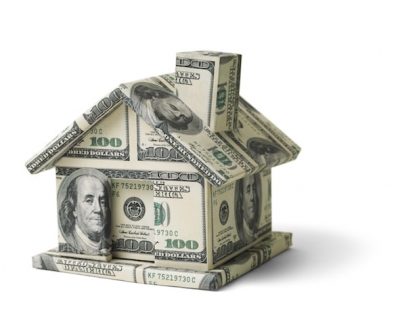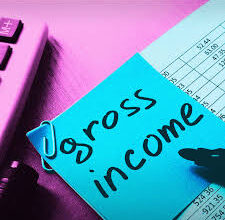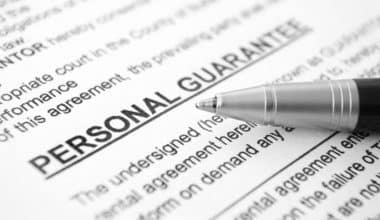Mortgages are a fantastic opportunity for people to cut corners, deceive, and cheat for capital gain when it comes to financial crimes.
Mortgage fraud comes in many types, and it can be difficult for lenders to detect them all. This article covers the five most frequent types of mortgage fraud, how to detect mortgage fraud red flags, and how to report mortgage fraud cases.
What is a Mortgage Fraud?
Mortgage fraud is defined as the deliberate falsification of facts required to fund, purchase, or insure a mortgage. In addition to the FBI, there are a number of professional groups that monitor and investigate mortgage fraud, to which cases can be reported.
Types of Mortgage Fraud
There are numerous types of mortgage fraud schemes to be cautious of, ranging from property flipping to foreclosure fraud. The examples below are based on the FBI’s list of the most common types of mortgage fraud. Although these are the most well-known types of mortgage fraud, keep in mind that this is not an entire list.
#1. Property Investing
Property acquisition, renovation, and resale are not necessarily criminal. If it was, the rise of property flipping shows would have been far more contentious. However, there are times when house flipping becomes fraudulent. This sort of mortgage fraud occurs when a property is purchased below market value and immediately sold for a profit. This is generally done generally with the assistance of a dishonest appraiser who inflates the property’s worth.
#2. Rental of Assets
Loan applicants commit asset rental fraud when they borrow or rent the assets of others in order to look more suitable for mortgage funding. After the mortgage is paid off, the money is usually returned to the person who borrowed it.
#3. Equity Skimming
With equity skimming, investors may use straw buyers—people who buy property on behalf of others. Using phony income records and credit reports, the investors get a mortgage loan in the straw buyer’s name. Following the closing, the straw buyer transfers the property to the investor in the form of a quit claim deed. This, in turn, relinquishes all rights to the property and provides no guarantee of ownership.
Once in their name, the investor does not make any mortgage payments and instead rents the property until the event of a foreclosure, generally many months later, so benefitting from the rental income.
#4. Foreclosure Scams
Unfortunately, scammers might also try to take advantage of homeowners on the edge of foreclosure. In this type of mortgage fraud, homeowners who are about to default on their loans or whose homes are in foreclosure are persuaded to believe that they can rescue their homes by transferring ownership to a third-party investor. The offenders profit by selling the property using a false appraisal and therefore taking the seller’s profits.
In this technique, homeowners may be encouraged to believe they may rent their home for at least a year and then repurchase it after they recover their credit. However, the culprits fail to make mortgage payments, and the property is frequently foreclosed.
To avoid being a victim of this scam, do not give any money or information to a third party until you have contacted your lender or servicer!
#6. Use of a False Identity
Scammers frequently perpetrate mortgage fraud by using fictitious or stolen identities. This occurs when a scammer secures financing using an unaware victim’s financial information. This includes Social Security numbers, stolen pay stubs, and false job verification forms, resulting in a fraudulent mortgage on a house they do not own or occupy.
Physical papers, such as bills and cheques, might put you at risk of identity theft since they frequently contain important information. To protect yourself, switch to paperless billing and make digital payments wherever possible.
#7. False Appraisals
False appraisals are another typical method used by con artists to perpetrate mortgage fraud. Appraisal fraud can be conducted by the appraiser alone or in collaboration with other professionals such as the builder and mortgage banker.
In certain cases, a corrupt appraiser may undervalue a property to ensure that an investor can buy it. More frequently than not, we see appraisers inflate the value of a property to boost the purchase price and, in turn, maximize their compensation.
What are the Consequences of Mortgage Fraud?
Mortgage fraud is a severe crime that can have major legal ramifications. There is legislation in place at the municipal, state, and federal levels to hold borrowers and mortgage providers accountable. Although the particular repercussions may vary based on the extent of the fraudulent activity, a mortgage fraud conviction under current federal and state laws can result in up to 30 years in federal prison and up to $1 million in fines.
How Mortgage Fraud Affects Consumers
Identity theft is a particularly dangerous type of mortgage fraud because it immediately results in financial loss for the homeowner. For example, if an identity thief obtains a homeowner’s Social Security number or intercepts the mortgage account number, he or she can use that information to obtain a tens of thousands of dollars home equity line of credit (also known as a HELOC) in the homeowner’s name.
The cash is transmitted to a bogus account established by the burglar, and the homeowner is left holding the bill. Alternatively, the fraudster could take out a second mortgage using the homeowner’s stolen data details and flee with the money, leaving the burden to the homeowner once more.
While any type of mortgage fraud is a severe act, losing one’s data to identity thieves can result in a significant financial loss that might take years to recover from. Other consequences include losing money and time, or missing out on the acquisition of a dream home because you must spend extra time dealing with recovering your identity if you are a victim of mortgage fraud.
How to Guard Against Mortgage Fraud
The key to avoiding mortgage fraud for homebuyers is education. Never sign a mortgage application form or house assessment form until you’re convinced all of the information—especially personal financial data—is correct.
Protecting yourself from mortgage fraud also includes safeguarding against identity theft, which can result in considerable financial loss.
Unfortunately, both home buyers and sellers may encounter aggressive bankers, brokers, and real estate agents who are eager to close a deal at any cost. If you have concerns about a potential lending partner, consult with a trustworthy financial counselor or a real estate contract lawyer. Also, take immediate preventive action if fraud is discovered.
Mortgage lenders are taught to check for discrepancies and abnormalities in mortgage loan applications. If you have any doubts about the credibility of a mortgage broker or real estate agent, contact your local Better Business Bureau to ensure there have been no complaints filed against your loan partner.
Take the following precautions to avoid becoming involved in a mortgage fraud situation:
#1. Rely on Reputable Referrals
When purchasing a property, you must have faith in your mortgage partners. Build trust by getting referrals from family, neighbors, and friends, as well as real estate experts who can recommend a lender, broker, appraiser, or real estate agent. Use whatever existing relationships you have with banks or financial institutions to your advantage. You’ll be more prepared if you get pre-approved for a mortgage from a trustworthy lender. It will make the home-buying process go more smoothly.
#2. Stay away from aggressive mortgage lenders.
Avoid mortgage lenders who press you to sign on the dotted line. This is especially true for mortgage lenders who advertise no-money-down or “low or no-document” loans. Depending on state-by-state mortgage loan legislation, these loans may or may not fall under the “fraudulent category”.
However, they may get you a loan with high-interest rates that may escalate over time, and hefty mortgage fees that just add to your mortgage loan debt burden. Don’t lie on a mortgage application if someone advises it. That is a clear red flag that you should avoid working with that person or firm.
#3. Do Not Sign Any Questionable Documents
Never sign a mortgage loan document that is blank, has blank lines, or contains suspect or unfamiliar information. This could put you on the route to mortgage fraud. Instead, review the mortgage loan agreement with a trusted real estate agent or legal expert.
#4. Examine Your Credit
You should also check your credit report on a regular basis for any new accounts that you do not recognize. Another option to keep an eye out for new accounts is to utilize an identity protection program like Experian IdentityWorks. They send you notifications when new accounts or inquiries are added to your credit report. If you are a victim of identity theft, you will also have access to a professional fraud resolution representative.
#5. Be pragmatic
Buying a house may be an emotional process. Don’t let your desire to acquire your first property or dream home cloud your smart judgment. Take your time evaluating everyone you work with, from your realtor to your buyer. Seek the advice of a trusted counselor if you have any concerns. Also, if you own a property and are having difficulty making your mortgage payment, contact your lender to see what options they have. There are frequently additional options if you can’t pay your mortgage, such as refinancing your mortgage, forbearance, loan modification, and repayment programs.
How to Report a Mortgage Fraud
If you feel your mortgage loan account has been compromised as a result of identity theft, follow these three steps to make a mortgage fraud report:
#1. Contact the Company Involved Right Away
Contact your mortgage lender or financial institution as soon as possible so that any suspected mortgage fraud or identity theft can be identified. Keep a record of your interactions and papers in a safe place that you may access as needed during the identity theft recovery process.
#2. Inform Uncle Sam about ID theft.
To file a mortgage fraud report, go to the Federal Trade Commission’s IdentityTheft.gov website. The FTC will walk you through your mortgage fraud report, direct you to the appropriate recovery options, and eventually assist you in developing a customized identity theft response plan to get you back on track.
#3. Request a Fraud Alert
If you suspect someone has tampered with your identification, Experian can provide you with a fraud alert. Fraud warnings advise potential creditors or lenders that they must verify your identification before issuing credit in your name if your information is being used without your permission. A fraud alert will remain on your credit report for 90 days, giving you plenty of time to close any compromised accounts, open new ones, and go through the right processes to repair the damage. If you are verified to be the victim of identity theft, you can additionally receive an extended fraud alert for up to seven years.
Here are some more resources to help you understand, prevent, and deal with mortgage fraud:
- U.S. Department of the Treasury Financial Crimes Enforcement Network: Mortgage Fraud Resources
- The FDIC has resources to help you understand foreclosure scams.
- Tips for Avoiding Housing Scams on USA.gov
- The Housing and Urban Development (HUD) Department: Counselors are available around the United States to assist you in avoiding scams and selecting the best loan.
How Is Mortgage Fraud Committed?
Mortgage fraud for the title would occur if someone changed the title to your home using your identification, forged documents, or a stolen identity. When a con artist obtains a mortgage on your home using your stolen identity and fictitious paperwork, they have committed mortgage fraud for the title.
Is Fraud with Mortgages Illegal?
A major form of fraud, mortgage fraud is also illegal. Simply put, mortgage fraud is any instance in which a person or group of people (such as an organized crime gang) intentionally misleads and defrauds a mortgage lender.
Does Mortgage Fraud Get Investigated by Banks?
They may launch an internal inquiry and, if fraud is discovered, report to the criminal authorities, but they do not undertake criminal investigations.
In conclusion
Mortgage fraud is serious — harmful, illegal, and frightening if you don’t know how to avoid it. As a homeowner, you may be a target for scammers or be a victim of fraud yourself. To safeguard your own safety and success, we always recommend visiting a real estate attorney to check any legal papers prior to closing on a property.
If you suspect you are a victim of mortgage fraud, notify local law enforcement and other agencies as soon as possible.
Mortgage Fraud FAQs
What is most common type of mortgage fraud?
Identity theft and income/asset fabrication are the two most typical types of individual mortgage fraud frauds. Identity theft happens when the genuine buyer secures financing fraudulently using the details of an unwilling and unknowing victim, such as Social Security numbers, birth dates, and residences.
What happens if accused of mortgage fraud?
Mortgage fraud can result in significant prison time. A federal mortgage fraud conviction can result in a 30-year jail sentence. A state conviction can last a few years or more. Misdemeanor fraud convictions can result in up to a year in jail.
What happens during a fraud investigation?
The investigation of fraud begins with a meeting between the investigator and the client. The individual initiating the investigation explains why they suspect deception and provides whatever proof they have to back up their assertions. A qualified fraud investigator will use this preliminary knowledge to gather additional evidence and information.






